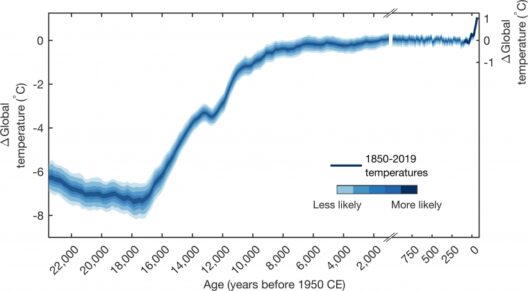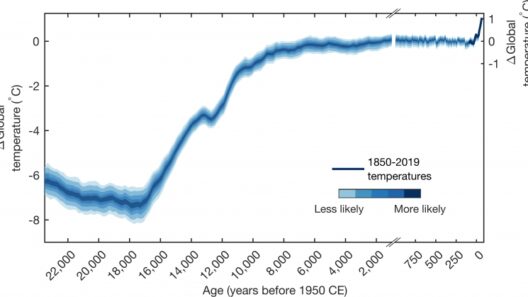Global warming is a pressing predicament that humanity cannot afford to ignore. With rising sea levels, unprecedented heatwaves, and erratic weather patterns, the stakes have never been higher. The query arises: “How can governments catalyze meaningful change to ameliorate the consequences of climate change?” This question becomes even more pertinent amidst the ongoing debates about the efficacy of governmental intervention. This discourse will explore several pivotal policies that can empower governments to tackle this existential crisis effectively.
To embark on this journey, one must first contemplate the magnitude of the challenge that governments face. With an intricate web of economic, social, and environmental factors intertwining, crafting effective climate policy is akin to solving a complex puzzle. Not only must governments aim for significant emissions reductions, but they must also do so while ensuring economic stability and social equity. So, where does one start?
One of the foremost policies that governments can implement is the establishment of a robust carbon pricing mechanism. This approach can manifest as either a carbon tax or a cap-and-trade system. By assigning a monetary cost to carbon emissions, governments can create a financial incentive for industries to reduce their greenhouse gas outputs. In a cap-and-trade system, companies are allocated a certain number of emission permits. If they exceed their limits, they must purchase additional permits from others who have managed to lower their emissions. This cap-and-trade system has been successful in regions like the European Union, significantly reducing emissions while fostering innovation in clean technologies.
Furthermore, strengthening regulations around energy efficiency can amplify governmental efforts to combat global warming. Enacting stringent energy performance standards for buildings and appliances not only reduces carbon footprints but also saves consumers money on energy bills. For instance, implementing mandatory energy audits and retrofitting programs for older buildings can drastically enhance their energy efficiency. Moreover, investment in renewable energy sources—such as solar, wind, and hydropower—should be prioritized through subsidies and tax incentives. These measures can make clean energy more accessible, driving down reliance on fossil fuels.
Governments can also take a substantive stance on transportation policies. The transportation sector is a significant contributor to global emissions, making it imperative to reassess how people and goods move. Enhancing public transport systems can provide residents with viable alternatives to personal vehicles, consequently reducing traffic congestion and emissions. Governments can incentivize the use of electric and hybrid vehicles through tax breaks and rebates, thereby stimulating a shift towards a greener transportation landscape. Embracing smart city concepts can also result in improved urban planning, integrating efficient transport networks that prioritize sustainability.
Transitioning towards a circular economy presents another strategic avenue for governments to mitigate environmental impact. This system emphasizes resource efficiency by promoting recycling, reusing, and reducing waste. By enacting policies that mandate recycling and impose restrictions on single-use plastics, governments can significantly reduce the volume of waste sent to landfills. Furthermore, fostering research and development in sustainable packaging alternatives can pave the way for innovation that aligns economic growth with ecological preservation.
Nevertheless, achieving success in these domains necessitates a collaborative approach. Governments must engage with businesses, non-profits, and citizens alike. Establishing partnerships with private sectors can unlock potential for sustainable innovation and investment. Involving local communities in decision-making processes ensures that policies reflect the needs and values of the populace, thus gaining broader support. This bottom-up approach can help foster a culture of sustainability that transcends political boundaries.
Moreover, education plays a crucial role in this multifaceted endeavor. Governments have the capacity to incorporate climate change into educational curricula, thereby fostering an informed citizenry. When individuals understand the intricacies of global warming and its consequences, they are more likely to support policies aimed at sustainability. Initiatives to promote public awareness campaigns about climate change can galvanize action across different sectors and demographics, empowering citizens to hold their governments accountable.
International cooperation is also indispensable. Climate change is a global issue that requires countries to transcend national interests. Governments should actively participate in international accords, such as the Paris Agreement, committing to ambitious emission reduction targets while supporting developing nations in building resilience against climate impacts. By leading global efforts, governments can foster a united front in combating the climate crisis and share innovative solutions and technologies across borders.
The challenge, however, remains daunting: how can we ensure the political will to enact and enforce these vital policies? Often, the intersection of economic interests and environmental stewardship leads to resistance. To surmount this obstacle, transparency and accountability must be the cornerstones of climate governance. Implementing measures that require regular reporting on emissions and policy outcomes can bolster public trust, ensuring that governments remain committed to their promises.
In conclusion, the path towards mitigating global warming is complex but navigable. Governments play a pivotal role in spearheading initiatives that can revolutionize how societies approach climate change. By adopting cohesive energy policies, enhancing transportation infrastructure, promoting a circular economy, engaging in public education, and fostering international partnerships, governments can create a more sustainable world. The true measure of success lies in transforming these daunting challenges into opportunities for innovation and empowerment. The time for decisive action is now; the future of our planet depends on it.








